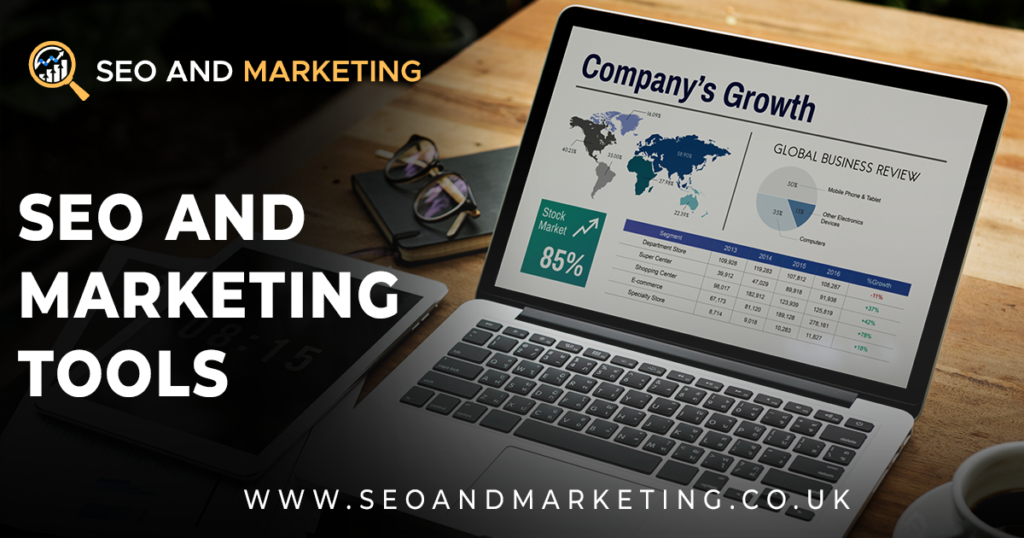In today’s digital world, having a strong online presence is essential for any business aiming to thrive. Whether you’re a small local shop or a large corporation, SEO and marketing tools can significantly boost your visibility and attract more customers. This guide will walk you through the best tools available for businesses in the UK, helping you understand their benefits and how to use them effectively.
Why SEO and Marketing Tools Matter
Before diving into the tools, let’s discuss why they’re crucial. Imagine you have an amazing product, but your potential customers can’t find you online. That’s where SEO (Search Engine Optimization) comes in. SEO helps improve your website’s ranking on search engines like Google, making it easier for people to find you. On the other hand, marketing tools help you reach a broader audience, engage with customers, and convert leads into sales.
Anecdote
Take Sarah, a boutique owner in London. Despite having unique and high-quality products, her online sales were minimal. After investing in SEO and marketing tools, her website traffic increased by 150%, and her online sales tripled within six months. This transformation was possible because Sarah leveraged the right tools to enhance her online visibility and marketing efforts.
Top SEO and Marketing Tools for UK Businesses
Here are some of the best SEO and marketing tools that can help your business grow:
1. SEMrush
SEMrush is an all-in-one tool that offers a variety of features for SEO, PPC, content marketing, and competitive research. It provides insights into your competitors’ strategies, helps you find the best keywords, and tracks your rankings.
- Keyword Research: Identify high-performing keywords to target in your content.
- Site Audit: Analyze your website for SEO issues and get actionable recommendations.
- Competitor Analysis: Discover what your competitors are doing and how you can outperform them.
2. Ahrefs
Ahrefs is another powerful tool widely used for SEO and backlink analysis. It helps you understand why your competitors rank so high and what you need to do to outrank them.
- Site Explorer: See the performance of any URL in terms of organic traffic and backlink profile.
- Content Explorer: Use Content Explorer to locate the most well-liked articles in your industry.
- Rank Tracker: Monitor your rankings over time and see the progress of your SEO efforts.
3. Google Analytics
Google Analytics is a must-have tool for any business. It provides comprehensive data about your website traffic, user behavior, and much more. You need this information to make well-informed judgments regarding your marketing tactics.
- Traffic Analysis: Recognize the origins of your website’s visitors.
- Behavior Flow: See how users navigate through your site.
- Conversion Tracking: Measure the effectiveness of your marketing campaigns.
4. Moz
Moz offers a suite of SEO tools that help with keyword research, link building, and site audits. It’s user-friendly and provides great insights to improve your SEO.
- Keyword Explorer: Find and prioritize the best keywords for your site.
- Link Explorer: Analyze your backlink profile and find link-building opportunities.
- Site Crawl: Detect and fix SEO issues on your website.
5. Mailchimp
While not a traditional SEO tool, Mailchimp is essential for email marketing. It helps you design emails, manage your audience, and analyze campaign performance.
- Email Campaigns: Create professional email campaigns easily.
- Audience Management: Segment your audience for targeted campaigns.
- Analytics: Track the performance of your email campaigns.
6. HubSpot
HubSpot is a comprehensive inbound marketing and sales platform that helps businesses attract visitors, convert leads, and close customers.
- CRM: Professionally manage your interactions with customers..
- Marketing Hub: Tools for email marketing, social media, and more.
- Sales Hub: Improve your sales processes and close deals faster.
Step-by-Step Guide to Using These Tools
Step 1: Look up relevant keywords
Start with tools like SEMrush or Ahrefs to find the best keywords for your business. Look for terms that are relevant to your products or services and have a high search volume but low competition.
Step 2: Enhance Your Online Presence
Use Moz or SEMrush to audit your site and fix any SEO issues. This might include optimizing your meta tags, improving site speed, and ensuring your site is mobile-friendly.
Step 3: Track and Analyze Traffic
Set up Google Analytics to monitor your website traffic. Pay attention to where your visitors are coming from, which pages they visit the most, and how long they stay on your site.
Step 4: Build Backlinks
Use Ahrefs to find opportunities for backlinking. Reach out to relevant websites and blogs to get them to link to your content.
Step 5: Engage Your Audience
Leverage Mailchimp to create and send engaging email campaigns. Segmentation can be used to target particular audience groups.
Step 6: Monitor and Adjust
Regularly review your performance using these tools. Adjust your strategies based on the data you collect to continuously improve your SEO and marketing efforts.
Conclusion
Investing in SEO and marketing tools is essential for any business looking to succeed online. These tools not only help you improve your website’s visibility but also enable you to engage with your audience more effectively. By following the steps outlined in this guide, you can harness the power of these tools and drive significant growth for your business.


